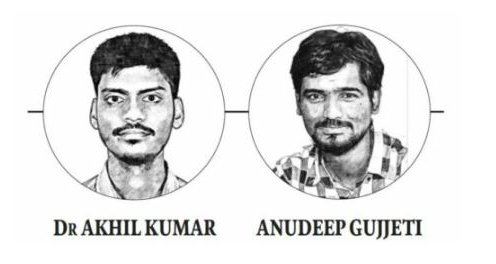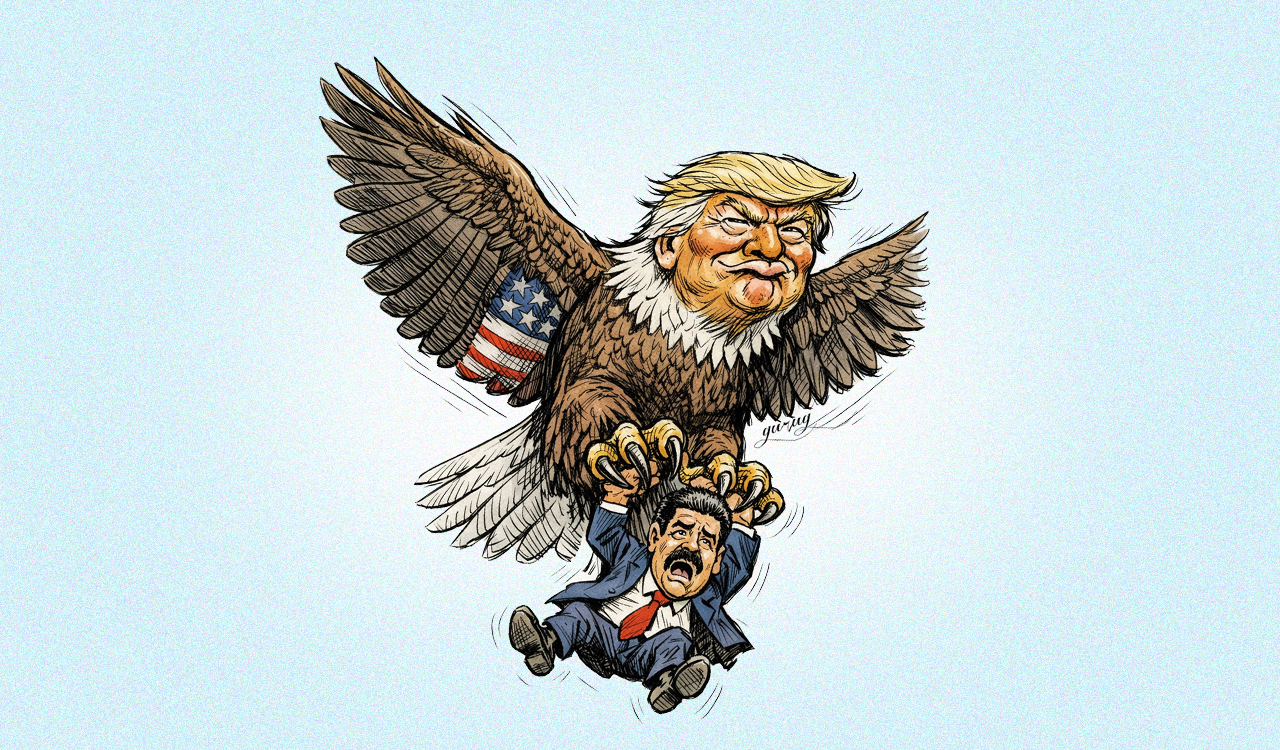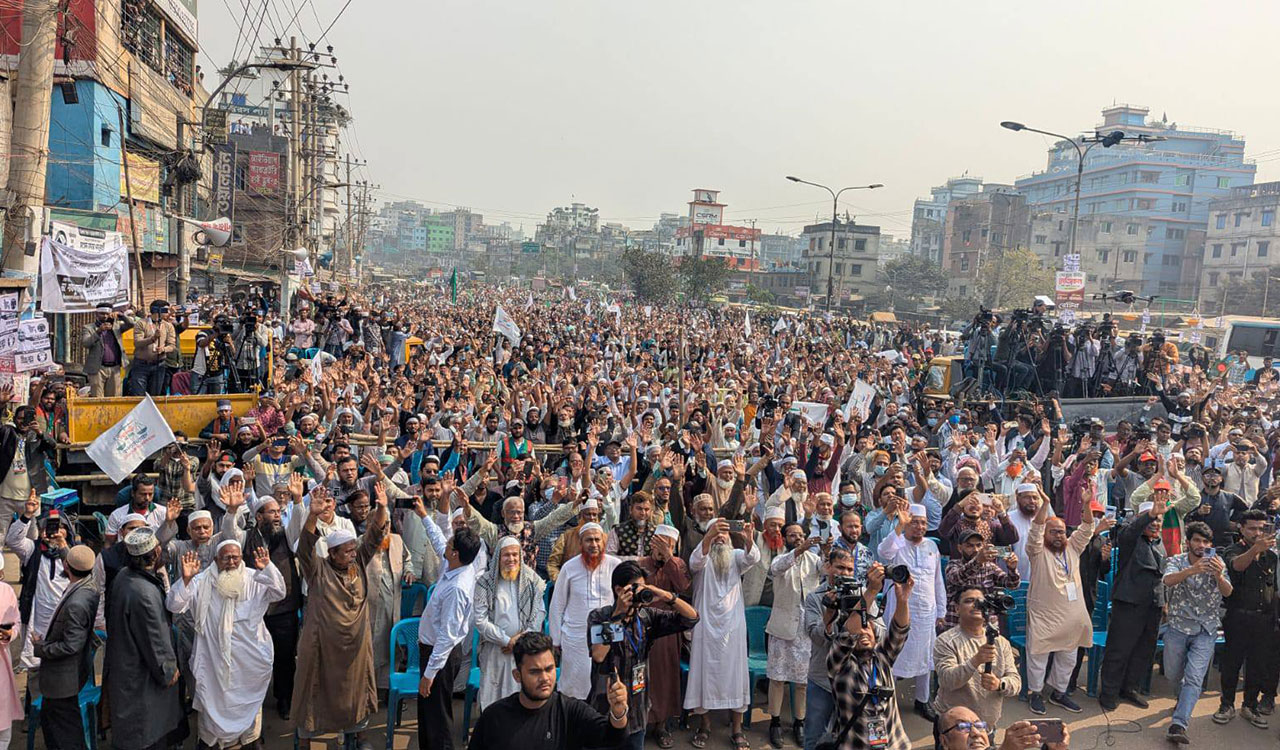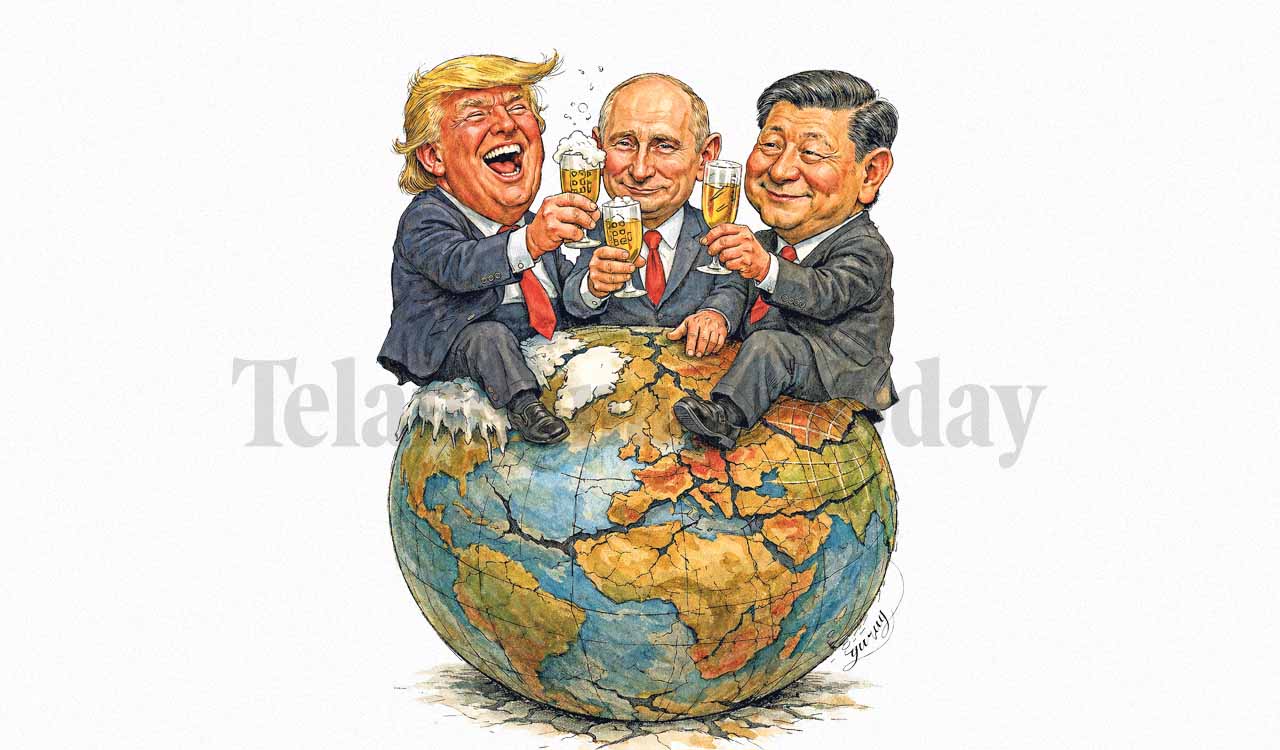Rewind: The Year When Half of the World Voted
The largest election year in history, 2024 saw a rise in right-leaning governments and coalition formations across the globe but also underscored the resilience of democracy

Dr Akhil Kumar, Anudeep Gujjeti
As 2024 draws to a close, it has been the largest election year in the history of global politics, with almost half of the world’s population exercising their franchise. Simultaneously, the year also witnessed protests leading to widespread public outrage over the organisation and outcomes of the elections.
The Pew Research Center’s report, Global Elections in 2024: What We Learned in a Year of Political Disruption, elucidates growing frustration with political elites, challenges to traditional political parties and widespread dissatisfaction with the status quo. These factors created fertile ground for the rise of populist movements across the globe. The trend was evident in countries such as the United States and Germany where right-wing populism remains strong, and in Mexico, where left-wing populism is on the rise.
No Free and Fair
The conduct of free and fair elections is intended to facilitate a stable transition of power, but this has not been proven true in all cases. Bangladesh is a prominent example of this failure. The political landscape in Bangladesh faced significant challenges, beginning with the main opposition party’s boycott of the January elections, followed by widespread political unrest, culminating in deadly protests. By August, as the situation escalated, Prime Minister Sheikh Hasina was forced to flee the country by seeking asylum in India.
Within Europe, several countries experienced large-scale protests spilling onto the streets. In France, protests erupted over changes to New Caledonia’s voter registration rules. In Romania, unrest followed after the constitutional court annulled the first round of voting, citing concerns over alleged external interference from Russia while post-election protests continued in Georgia’s capital Tbilisi, driven by discontent over the decision to put EU accession negotiations on hold.
• There was a slight rise in left-wing populism in a few countries, such as Mexico, where the Morena party, only a decade old, now dominates the nation’s politics
Within African nations, protests emerged in several countries: in Ghana, over alleged voter roll manipulation; in Senegal, against election delays; in Tanzania, over the dissolution of various administrative regions; and in Tunisia, against the repression of electoral opponents. Several other countries also witnessed protests over the manipulation of electoral rolls, such as Venezuela, Russia and Indonesia.
In April, South Korean voters handed a majority of seats in the National Assembly to the opposition Democratic Party, signalling a rebuke to President Yoon Suk Yeol and his People Power Party. By early December, tensions escalated when Yoon declared martial law, accusing Democratic Party leaders of engaging in ‘anti-state’ activities. However, the National Assembly acted swiftly, voting unanimously to overturn his decision and lift martial law.
• The most dramatic defeat for a long-time incumbent party may have occurred in the southern African nation of Botswana, where the Botswana Democratic Party lost power for the first time in nearly 60 years and was reduced to four seats in Parliament
The elections in 2024 resulted in a rise in right-leaning governments, coalition formations, and populist movements across the globe. It was a challenging year for incumbents across the globe. In cases, where incumbents retained power, they did so with a reduced majority, like in India where Prime Minister Narendra Modi-led Bharatiya Janata Party (BJP) lost its majority in the elections held in April-May. In Japan, the Liberal Democratic Party — which has governed the country for most of the post-World War II era — and its coalition partner, Komeito, lost their majority in parliament. The African National Congress in South Africa failed to win a majority of National Assembly seats for the first time since the end of apartheid.
Right Rises, Left Leaps Back
Reflecting the rise of right-wing space in global politics, Conservative parties made significant inroads in the majority of these electoral contests, with mainstream centre-right parties taking the lead in countries such as Finland and Panama, while both centre-right and far-right parties achieved success in countries like Belgium and Portugal.
Instances of increased vote shares for far-right parties were generally incremental, as observed in the European Union’s parliamentary elections. France, Romania, Germany, Portugal, Austria and the UK all witnessed the rise of right and far-right parties gaining a foothold as a result of the disenchantment with the political class in those countries.
According to data from the International Institute for Democracy and Electoral Assistance and the National Democratic Institute, elections were held in 62 countries, with right-leaning governments securing victories in 25 of them, representing 42.4% of the total share.
• Putin won an unprecedented 5th term as president of Russia in an election marred by violence, alleged voter fraud and hardly any independent monitors to document irregularities. There were three token contenders but none offered voters any choice
Left- and centre-aligned parties joined forces to block Marine Le Pen’s right-wing populist National Rally from gaining power in France. Despite this, Le Pen’s party significantly increased its seat count by winning 31.5% votes in the National Assembly. By early December, the National Rally, in an unexpected move, joined the New Popular Front, a coalition of left-leaning parties, to bring down the government of conservative leader Michel Barnier after just three months in office.
In 2024, seven of the largest nations within the G20 voted in national elections. Of these, three countries elected right-leaning parties while three chose left-leaning. Vladimir Putin won an unprecedented fifth term as president of Russia in an election marred by violence, alleged voter fraud and hardly any independent monitors to document irregularities. There were three token contenders but none offered voters any real choice.
There was a slight rise in left-wing populism in a few countries, such as Mexico, where the Morena party, only a decade old, now dominates the nation’s politics. The Labour Party won an overwhelming parliamentary majority, bringing 14 years of Conservative Party rule to an end in the UK. However, the most dramatic and significant electoral outcome occurred in Sri Lanka. Anura Kumara Dissanayake who won only 3% of votes in the last elections secured a landslide victory in both the presidential and parliamentary elections, with voters expressing their profound dissatisfaction with the traditional political elite in the history of Sri Lankan politics.
It’s the Economy, Stupid
This phrase was coined by James Carville, an American political consultant and strategist in Bill Clinton’s successful 1992 US presidential election. It is the economy that determines whether voters are satisfied with a government and if they will re-elect or vote it out. As per the survey by the Pew Research Center in June 2024, 64% of its respondents across 34 countries rated their economies negatively. In the same survey, 82% of South Koreans and 76% of Japanese rated their economy negatively.
Interestingly, this year, polling itself came under significant scrutiny, raising questions about the methods and techniques employed to gauge voter sentiment. In several instances, pollsters predicted a tight race, such as in the US elections, or prematurely declared a clear victory for a single party like in India, only for the actual results to contradict these forecasts. The truth became evident: no one can truly know how the electorate will vote or which way the political winds will blow.
• The Labour Party won an overwhelming parliamentary majority, bringing 14 years of Conservative Party rule to an end in the UK
Amidst growing economic and geopolitical strife, with the Ukraine war, conflicts in the Middle East and rising trade tensions between the US and China, the world’s two largest economies, this wave of fractured mandates poses significant challenges for governance. Minority governments often struggle to make decisive policy choices, which could have far-reaching implications for global issues ranging from climate change to international security.
2025 — Multipolar Disorder
The end of 2024 also marked the waning of the unipolar world order, giving way to what some describe as multipolar disorder. Traditional conflicts, such as the Russia-Ukraine war and the Israel-Hamas confrontation, continue to disrupt global supply chains and exacerbate humanitarian crises. Civil wars in West Asia, Africa and Myanmar have led to mass migrations, placing additional strain on already rigid borders in the US and Europe, where governments have frozen asylum applications and tightened immigration policies. The United Nations Office for the Coordination of Humanitarian Affairs projects that 305 million people will require humanitarian assistance in 2025. The sheer scale of humanitarian need underscores the urgency for global cooperation and resource mobilisation.
China’s assertive rise has intensified tensions in the Taiwan Strait and South China Sea, threatening free navigation and further destabilising supply chains. The geopolitical rivalry between the US and China is set to intensify, with Taiwan emerging as a focal point of contention. As Donald Trump prepares to take office, all eyes will be on his administration’s approach to trade and tariffs. Trump’s threats of additional tariffs on Chinese imports and his emphasis on defending Taiwan will likely escalate the already fraught relationship between the world’s two largest economies. The economic landscape in 2025 is laden with challenges, with the US-China trade relationship serving as a critical variable, potentially triggering ripple effects across global markets.
• The most dramatic and significant electoral outcome occurred in Sri Lanka. Anura Kumara Dissanayake who won only 3% of votes in the last elections secured a landslide victory in both the presidential and parliamentary elections
An often-overlooked consequence of these conflicts has been the surge in global defence spending. From Japan to Germany, countries are prioritising stockpiling weapons for deterrence. This arms build-up reflects a growing sense of insecurity in a fragmented international system. However, many of these nations are led by politically fragile governments, making decisive foreign policy actions risky. Domestic political considerations are expected to play a more significant role in shaping foreign policies, as leaders prioritise the survival of their governments over bold international initiatives.
In 2025, as global discussions on AI governance gain momentum through initiatives like the AI Action Summit in Paris, Canada’s G7 Presidency and Rwanda’s focus on Africa’s AI role, developing countries must recognise that mere participation in regulatory frameworks is insufficient. While efforts such as the UN’s Global Digital Compact and the EU’s AI Act will shape global norms, they predominantly reflect the priorities of developed nations. Without significant investment in AI research, infrastructure and talent, developing nations, such as India, risk becoming passive consumers rather than leaders in the AI revolution.
• In 2024, seven of the largest nations within the G20 voted in national elections. Of these, three countries elected right-leaning parties while three chose left-leaning
Climate change will also be another defining issue next year. With Conference of Parties (COP) 30 scheduled to take place in Belem, Brazil, countries will face critical decisions about financing green technology and meeting the goals of the Paris Agreement. However, Trump’s return casts doubt on the US commitment to international climate agreements. Potential withdrawals or renegotiations could shift the dynamics of global climate diplomacy, placing greater pressure on major economies like China and India to take the lead.
Despite its limitations, the largest election year in history underscores the resilience of democracy. From Europe to Asia, voters exercised their democratic rights, even as their choices resulted in fractured mandates and minority governments. This raises important questions about the interplay between domestic politics and foreign policy. In a world where leaders are increasingly constrained by fragmented legislatures and polarised societies, foreign policy decisions will be scrutinised not only for their global implications but also for their domestic political impact.
For instance, countries like France and Germany, which are grappling with internal political struggles, may adopt more cautious foreign policies to avoid destabilising their governments. As borders become more rigid and rightward political shifts reshape immigration policies, the world is entering a phase of cautious nationalism. The freezing of asylum applications for Syrian refugees in European nations and interlinking economic policies with national security reflect this trend.
The world in 2025 stands at a crossroads. Political fragmentation, economic uncertainty and geopolitical rivalries define the landscape. Yet, this period of uncertainty also presents opportunities for innovation and collaboration. Whether it is resolving long-standing conflicts, addressing climate change, or managing trade tensions, the actions of leaders in 2025 will have profound implications for the future.

(Dr Akhil Kumar is a PhD, Department of Political Science
University of Hyderabad. Anudeep Gujjeti is Assistant Professor, Centre of Excellence for Geopolitics and International Studies, REVA University, Bengaluru, and Young Leader, Pacific Forum, USA)
Related News
-
Opinion: US intervention in Venezuela — Sovereignty under strain
-
Bangladesh elections: Minority Hindus in crosshairs as radical plot unfolds
-
Rewind: Return of the 19th-century — survival of the strongest at Davos
-
Opinion: Monroe Doctrine reloaded—Venezuela, power politics, and return of the jungle order
-
Telangana student found dead in hostel at NIT Kurukshetra
8 mins ago -
Couple elected as chairperson and vice-chairperson of Nirmal Municipality
7 hours ago -
Telangana municipal polls: BRS pockets 18 municipalities
7 hours ago -
BJP draws sharp criticism for meeting Congress leaders in Hyderabad
8 hours ago -
Inorbit Mall Cyberabad hosts Valentine specials, interactive games and live performances
8 hours ago -
Jangaon chairperson election postponed amid high drama
8 hours ago -
Editorial: Showcasing India’s tech prowess
8 hours ago -
Health Minister orders suspension of absent Jogipet doctors
8 hours ago




